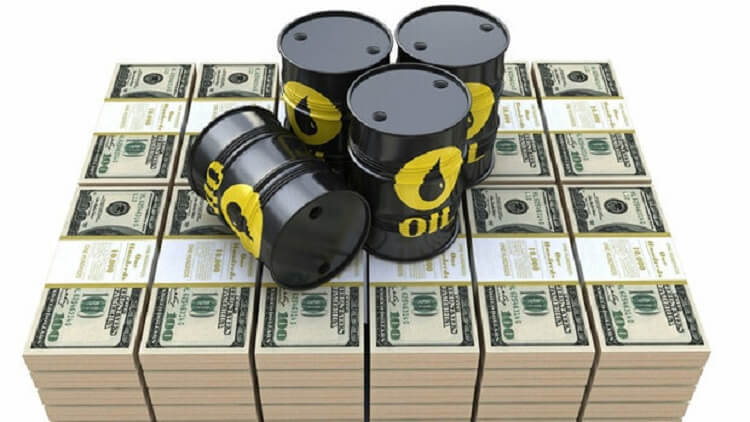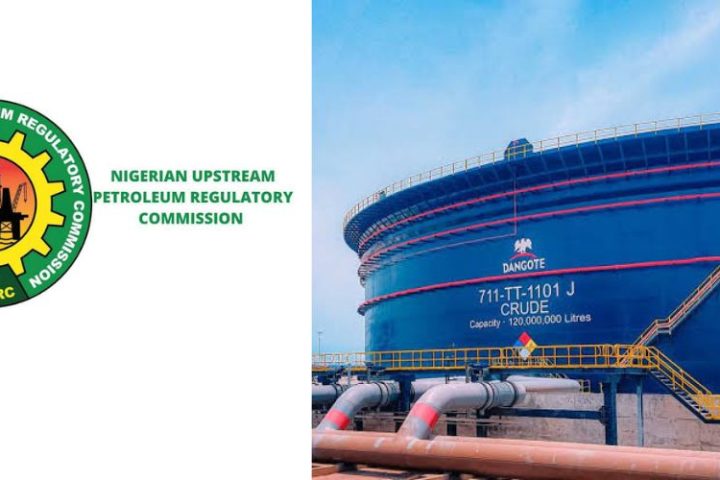Oil prices have risen sharply as escalating tensions between Iran and Israel raise concerns over potential disruptions to crude production.
Brent crude futures increased by $1, or 1.36%, reaching $74.56 per barrel in early trading. The U.S. West Texas Intermediate (WTI) crude followed, increasing by $1.07, or 1.53%, to $70.90 per barrel. This surge comes after both benchmarks saw gains of over 5% on Tuesday.
Join our WhatsApp ChannelOil prices surged initially after Iran launched ballistic missiles targeting key Israeli sites in retaliation for Israel’s military operations against Hezbollah, a group supported by Tehran. Brent futures closed the previous session up by $1.86, settling at $73.56 per barrel. U.S. WTI crude also rose, closing at $69.83 per barrel after gaining $1.66. Both benchmarks spiked by more than 5% earlier in the day.
Iran’s Response and Israel’s Retaliation
The conflict between Iran and Israel escalated as Tehran launched missile attacks in response to Israeli strikes on Gaza and Lebanon. “This is a direct retaliation for the recent assassination of our leaders,” said an Iranian military spokesperson, referring to the deaths of leaders from Hamas, Hezbollah, and Iran’s Islamic Revolutionary Guard Corps (IRGC).
The missile strikes triggered alarms across Israel, with explosions heard in Jerusalem and the Jordan River valley. Israel vowed to retaliate, with officials stating, “We will respond forcefully to any aggression against our nation.” The growing conflict has caused heightened fears of a prolonged confrontation that could destabilise the region further.
READ ALSO: Nigeria’s Oil Prices Trades At $90 Amid Global Economic Shifts
Impact on Global Oil Supply
Iran’s involvement in the conflict has raised concerns about its impact on global oil supplies. As a key OPEC member, Iran’s production plays a significant role in the market, with its output reaching a six-year high of 3.7 million barrels per day in August, which accounts for roughly 4% of the world’s oil supply. Any disruption to this supply could have far-reaching consequences on global energy markets.
OPEC+ ministers, including Russia, are set to meet to review the market’s current state. Although no policy changes are expected during the meeting, any further escalation in the Middle East conflict could influence future oil production decisions. OPEC+ has plans to increase output by 180,000 barrels per day starting in December, but this could be affected by the ongoing situation.
South Korea’s Concerns Over Energy Supply
The conflict’s impact is being felt far beyond the Middle East. South Korea’s President Yoon Suk-yeol expressed concerns about the country’s energy security due to the rising tensions. “We are monitoring the situation closely and are prepared to respond to any disruptions,” a government spokesperson said after Yoon met with national security and economic advisers. South Korea, like many other countries, relies heavily on oil imports, and any potential supply disruptions could drive up energy costs worldwide.
Rising Oil Prices and Nigeria’s Economic Outlook
For oil-exporting countries like Nigeria, rising oil prices could provide a mixed outlook. Higher prices typically translate into increased government revenue and stronger foreign reserves. However, with Nigeria’s ongoing transition to a cost-reflective petrol market, these price increases could also mean higher costs for consumers at the pump.
An NNPC official remarked, “While higher oil prices can benefit the economy, we must also prepare for the impact on petrol prices, which could rise further.” Petrol prices in Nigeria have already surged past N1,000 per litre in major cities, causing concern among citizens who are already grappling with high living costs.
Uncertainty Ahead
The current surge in oil prices is a direct consequence of the growing conflict between Iran and Israel, raising fears about the stability of global energy markets.
As tensions escalate, the risk of further price increases looms, with significant implications for both oil-exporting and oil-importing countries. How the situation unfolds will determine the direction of the global oil market in the coming weeks.
Emmanuel Ochayi is a journalist. He is a graduate of the University of Lagos, School of first choice and the nations pride. Emmanuel is keen on exploring writing angles in different areas, including Business, climate change, politics, Education, and others.

















Follow Us